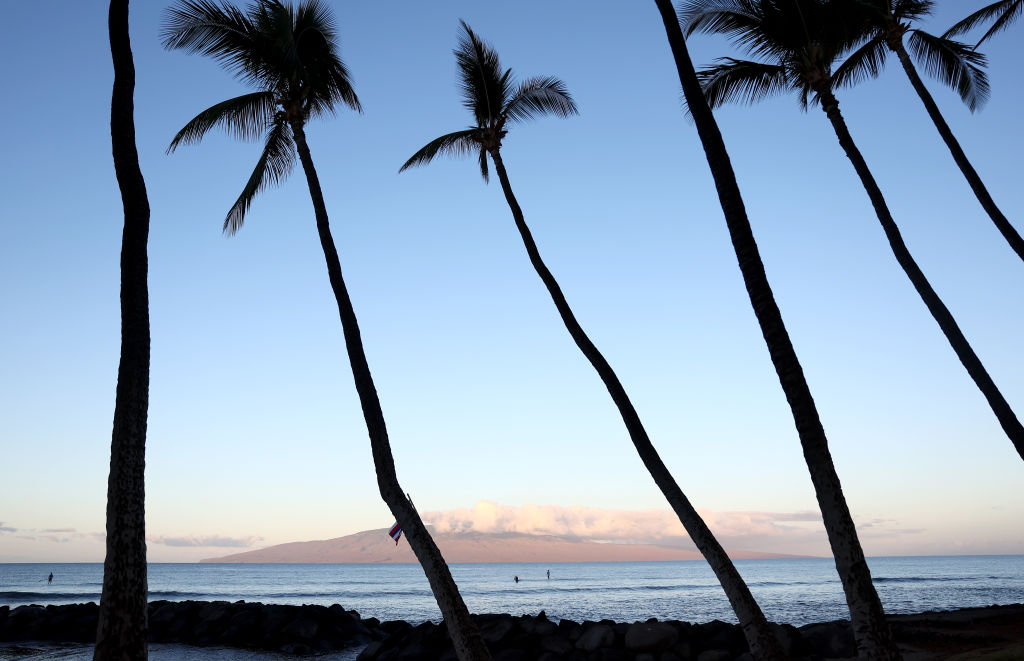A group of young people has just forced Hawaii to take comprehensive climate protection measures

The government of Hawaii and a group of young people have reached a historic agreement that commits the state to decarbonizing its transportation network. The agreement is the first of its kind in the country and comes two years after 13 Hawaiian youth sued the state Department of Transportation for failing to protect their “constitutional right to a clean and healthy environment.”
The agreement, announced last Thursday, requires the ministry to develop a plan and reduce greenhouse gas emissions in all transport sectors to zero by 2045. The agency must also set up a new unit to combat climate change, align its budget investments with its clean energy goals and plant at least 1,000 trees a year to increase carbon absorption from the atmosphere.
“It’s historic that the state government has come to the bargaining table and negotiated such a detailed package of commitments,” said Leinā’ala L. Ley, a senior attorney at Earthjustice, one of the environmental law firms representing the teen plaintiffs. “The fact that the state … has put its own creativity, energy and commitment behind the settlement means we’re going to be able to make real-time changes much more quickly that will actually have an impact.”
According to a press release from Hawaii Governor Josh Green’s office, the settlement represents the state’s “commitment to planning and implementing fundamental change” while providing an opportunity to work with juvenile plaintiffs rather than fight them to “address concerns about constitutional issues arising from climate change.”
“This settlement shows us how we can best move forward as a state to achieve life-sustaining goals. Moreover, we can expect these and other young people in Hawaii to continue to do everything they can to build the future they want,” Green said in a statement.
The 13 young people who filed the lawsuit Navahine v. Hawaii Department of Transportationhave cultural customs tied to the land. They are divers, swimmers, beachgoers, competitive paddlers, and managers of farms and fishponds. Many are Native Hawaiians. In the lawsuit, filed in 2022, they claimed that the state’s inadequate response to climate change has affected their ability to use the state’s natural resources. Since filing their lawsuit, at least two plaintiffs have been affected by the Lahaina wildfire, the deadliest natural disaster in the state’s history.
Hawaii has led the way in acknowledging the impacts of climate change. The archipelago is battling rising sea levels, extreme drought and wildfires, among other issues. In 2021, it became the first state in the U.S. to declare a “climate emergency” and commit to a “mobilization effort to reverse the climate crisis.” But the nonbinding resolution did not directly lead to statewide transportation policies that reduced greenhouse gas emissions, according to the teen plaintiffs.
Between 1990 and 2020, carbon dioxide emissions from the transportation sector rose despite advances in fuel efficiency and now account for about half of all the state’s greenhouse gas emissions. The plaintiffs argued that Hawaii’s Department of Transportation is largely to blame. Instead of coordinating with other agencies to meet the state’s net-zero goals, it has prioritized highway construction and expansion. The agency operates and maintains the state’s transportation network in a way that violates its duty to “preserve and protect the natural beauty and all of Hawaii’s natural resources,” the plaintiffs said.
Other similar constitutional climate cases are pending across the country. Our Children’s Trust, a public interest law firm that represented Hawaii’s youth at Earthjustice, has also filed lawsuits on behalf of young people against Montana, Alaska, Utah and Virginia. Ley said Hawaii is a “great model” that other states could follow. “This settlement shows that these legal commitments have real impact,” she said.
The settlement requires the state transport ministry to meet a number of deadlines and to set up a Decarbonization unit. The agency has already hired Laura Kaakua, who previously worked at the Hawaii Department of Land and Natural Resources, to lead the unit. Ley said they plan to monitor each report the agency releases, provide commentary and educate their young clients on how they can stay involved.
“On climate, young people often feel betrayed by their government,” Ley said. “But this agreement reassures these young people that working with government can be effective and that this is how they can make a difference in their lives and in the world.”
Editor’s note: Earthjustice is a Grist advertiser. Advertisers do not influence Grist’s editorial decisions.



